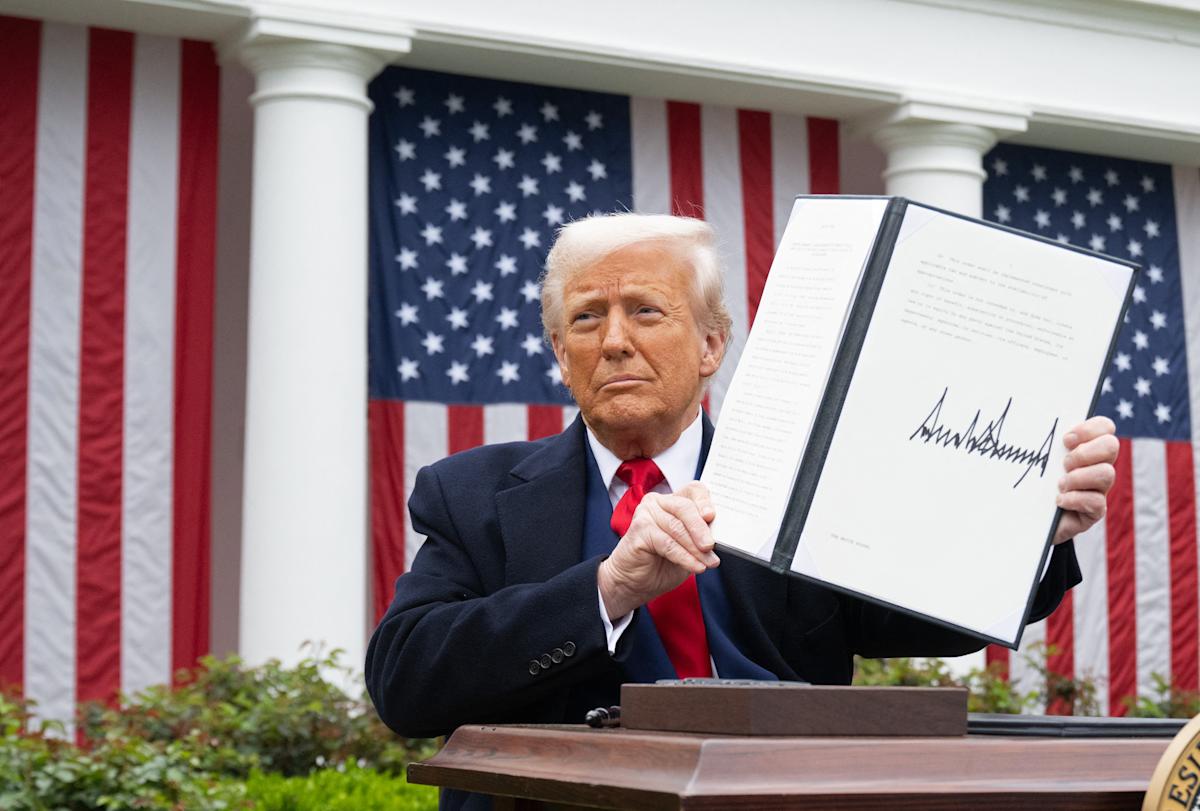President Trump is readying some substantial tariff cuts in a bid to address voter concerns over the rising cost of goods. Trump is hoping to ease high prices on coffee, bananas, and other foods. The tariff cuts would come with a series of new trade deals, reports say, which will include framework agreements with Argentina, Guatemala, El Salvador, and Ecuador.
Trump and top officials, including Treasury Secretary Scott Bessent, have in recent days previewed broader tariff exemptions that could cut levies on popular foods.
“Coffee, we’re going to lower some tariffs,” Trump told Fox News host Laura Ingraham in a recent interview.
The push to reduce food prices comes after electoral wins for Democrats across a number of key state and local races where candidates stressed affordability concerns. Trump has also in recent days floated the possibility of a tariff “dividend” for many Americans.
Trump recently acknowledged that US consumers are “paying something” for his tariffs, the bulk of which face a looming verdict from the Supreme Court.
In a closely watched case, a majority of the justices — both the court’s three liberal-leaning justices, as well as three more conservative ones — offered skeptical questions regarding the president’s authority to impose his most sweeping duties. If the Supreme Court does not side with Trump, it’s widely expected that the administration will seek out alternative methods to carry out the US trade agenda.
Read more: What Trump’s tariffs mean for the economy and your wallet
The EU said it will propose a plan to the US that would allow the next phase of the trade agreement to be implemented. The two sides reached a deal back in July and the EU is keen to move forward with the next phase.
Brazil said it hopes to reach a preliminary trade deal with the US this month, as relations between the two sides improve.
67% of Canadians say it’s unlikely a deal to lower US tariffs will be achieved in the next six months, according to a poll by Nanos Research Group for Bloomberg News.
The US and China reached a trade truce. The thaw means China will suspend additional export controls on rare earth metals and end investigations into US chip companies. As part of the deal, the US will pause some of Trump’s “reciprocal tariffs” on China for another year. (Read more: What are rare earth minerals, and why are they important?)
Trump said that “at some point,” he would reduce the tariff rate on Indian goods, and that the US was getting “close” to a trade deal with New Delhi.
Switzerland is also close to securing a 15% tariff on its exports to the US.
LIVE 44 updates
Trump readies tariff cuts, trade deals in affordability push
From beef to bananas, the US consumer is feeling the pinch from high prices on some of these everyday food items. President Trump and US Treasury Secretary Scott Bessent have been hinting all week about lowering tariffs on some key food groups in a bid to ease rising prices.
A series of new trade deals, which include a framework agreement with Argentina, Guatemala, El Salvador, and Ecuador, aim to address high prices and affordability concerns.
The latest move from the Trump administration comes a week after electoral victories for Democrats across a number of key state and local races, where candidates stressed affordability worries.
Bloomberg News reports:
